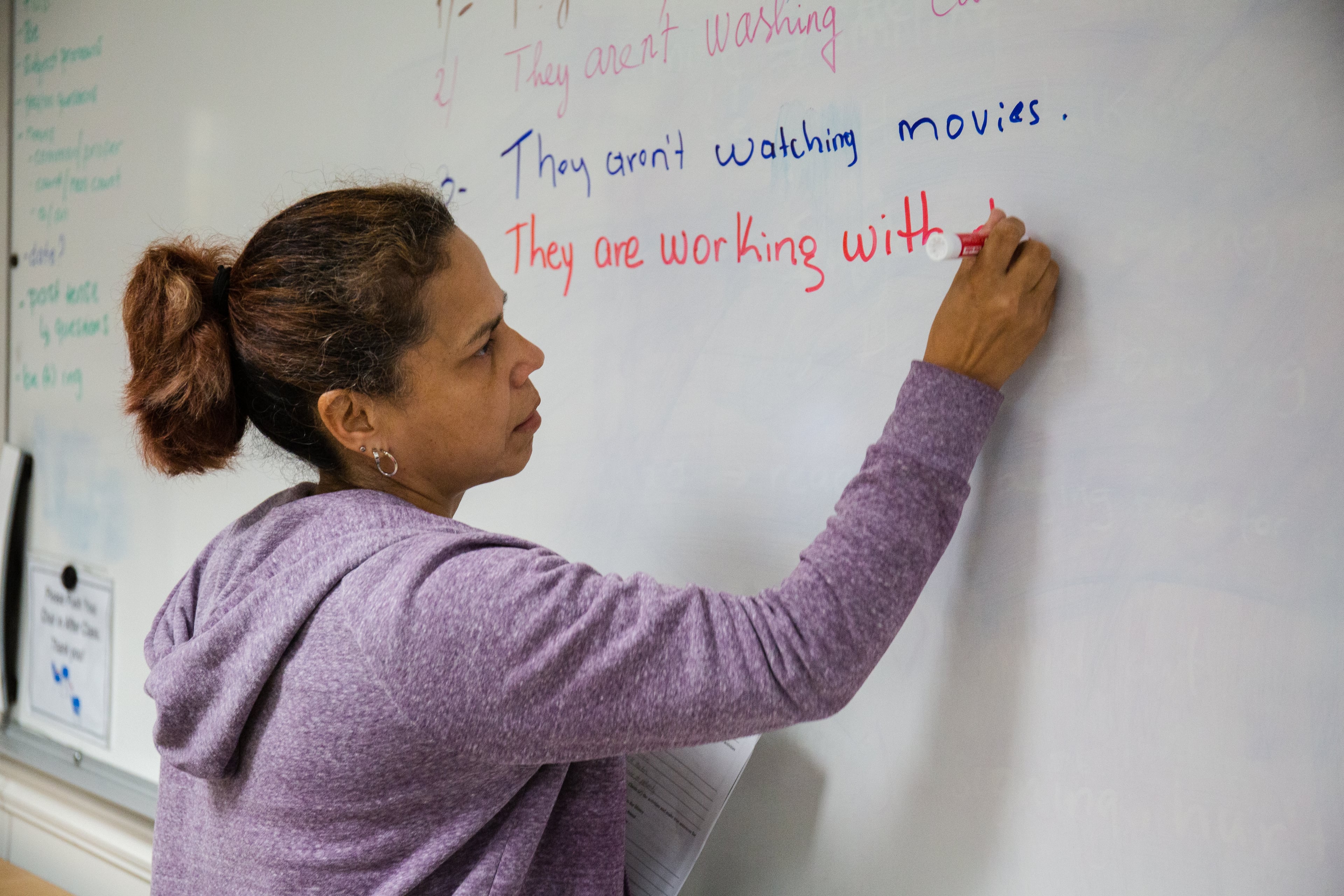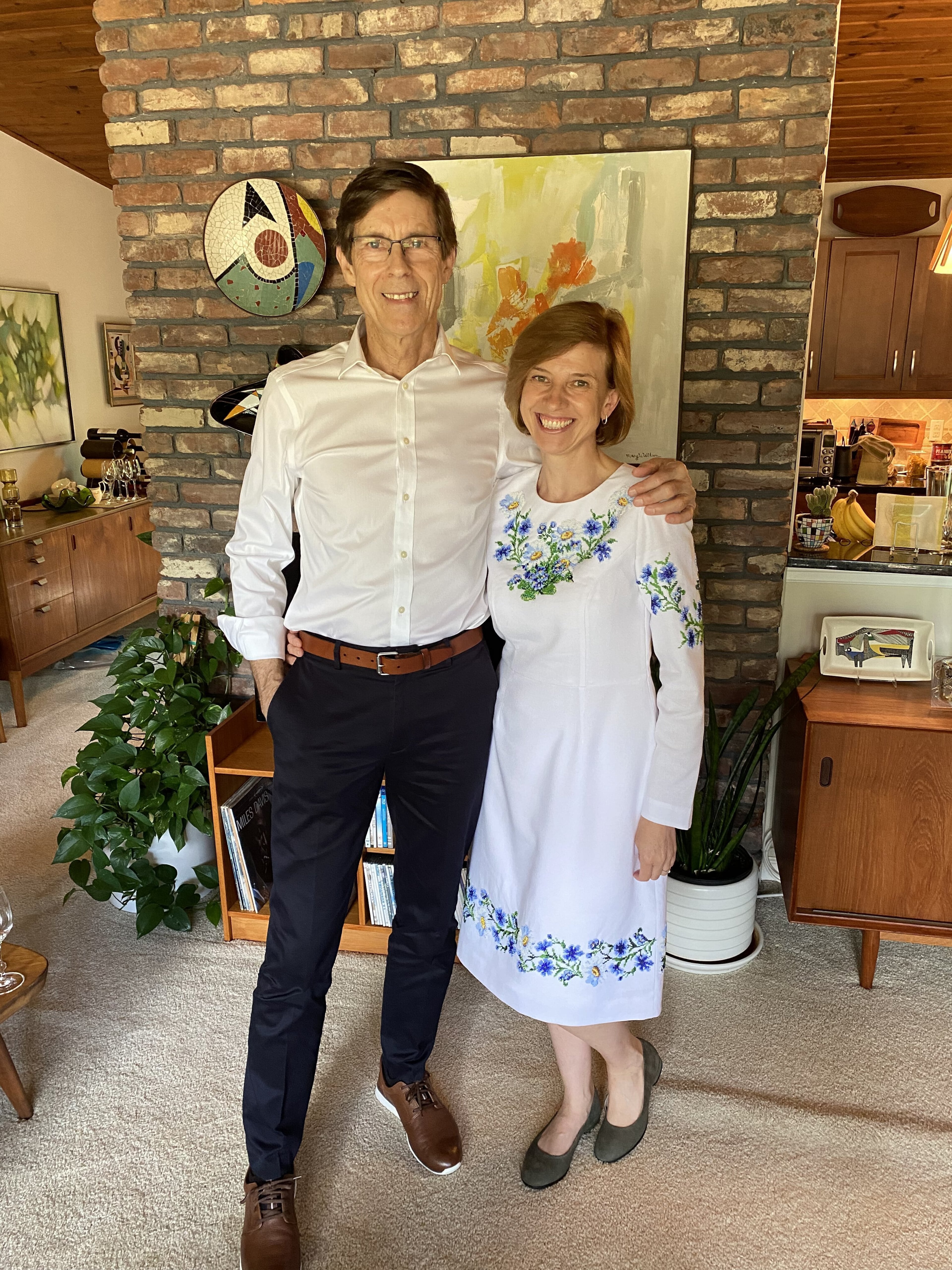ESL classes give adult students unique chance for community
Picking up a new language at any stage of life presents challenges, but for older adults learning English after moving to the United States, the endeavor can be especially consuming.
Metro area resources allow senior English as a Second Language students to hone their skills toward personal goals and to begin meaningful connections within their communities.
Resources for English Language Learners
Gwinnett Technical College is one of numerous Technical College System of Georgia campuses that offers ESL classes in person and online. The program can help older adults broaden their economic opportunities or further their academic credentials.
“We have a lot of people who come to our program who have master’s degrees,” Anthony Notarides, Adult Education Director of ESL at Gwinnett Tech, told The Atlanta Journal-Constitution. “But their English skills are just not what they need to be to pursue that field here. So, we just try to build people’s skills up as much as we can. We have levels one through six.”

Older adults can also rely on Literacy Action, a local nonprofit, to improve their language skill sets. The Literacy Action ESL program, like that of Gwinnett Tech, facilitates improvement of language skill sets to help students meet career or academic goals, according to program director Kanis Fatima.
“Once they get their high school diploma or improve skills in math or English or help in work readiness, etc … we help them go to the next step, be it getting a better job, finding a job, entering college, getting financial aid, getting any vocational training,” she said.
The Center for Pan Asian Community Services is another local ESL resource offering classes mostly in person. There are a couple of online options, too.
“CPACS provides valuable essential services to (Asian American Pacific Islander) communities, Hispanic communities, immigrants and refugees and families suffering in low-income situations,” ESL Department Program Director Grace Pyen said. “CPACS is well equipped with multilingual staff who are fluent in multiple languages and can assist clients with limited English proficiency. The ESL program is tailored to the current English skill level of each person.”
Challenges for adult learners
Older students navigating a place that’s relatively new to them face unique challenges, which can include learning the technology. They sometimes need to learn to communicate with instructors on WhatsApp or via text, Notarides said.
“We have people who are using a mouse for the first time in 80 years,” he said.
And a diverse student body with varied linguistic backgrounds presents a unique situation, according to Fatima.
“We serve ESL students from many countries,” she said. “The challenge is to keep them all engaged in learning one common language.”
Transportation to classes can be complicated for older learners, Pyen said.
“Most students do not have cars and are forced to carpool with family or friends or pay for rideshare services,” she said.
For some students, simply sitting in a classroom again can seem daunting, Notarides said. But he’s seen participants stick to their studies, even when progress is slow. He cites one couple who started classes prior to the pandemic. They began at level one, and now they’re studying at levels three and four.
Students have to test to move up the levels at Gwinnett Tech, he said, and some are more focused on their rates of progress than others. Lots of people just like coming to class.
“It really creates a sense of community,” he said. “It helps bond them with other people in the area.”
Diverse motivations
Students’ reasons for enrolling vary. Some want to communicate more fully with family.
“There can be a big language divide between the grandparents and the grandkids, and the grandparents want to understand what their grandkids are watching, what their grandkids are doing, so they want to learn as much English as possible,” Notarides said.
Fatima has seen this desire play out successfully.
“One of our ESL students who was a retired physician from her country, (she) stayed with us for three years (and) worked very hard to improve her English so that she could help her grandkids in their homework,” she said. “She recently got a job as an interpreter and is able to help all her grandkids with school work.”
Other senior learners plan to become citizens and exercise their voting rights. Pyen shared a story about a CPACS ESL student who persevered in the midst of a busy schedule to accomplish this goal.
“We had one senior ESL student who was struggling through having to take care of her busy family with a job at Walmart,” Pyen said. “She scheduled her time to make sure that she attended the ESL classes, no matter how difficult and busy her week was. Soon after, she took and passed the citizenship interview test and completed the oath ceremony — she was now a full-fledged U.S. citizen. She received a promotion at her job, and she expressed joy and pride for now being able to vote.”

Notarides said most attendees are simply looking to plug into their new communities.
“I think for our senior students, they’re looking mostly just to be able to communicate and understand what’s going on in the news, what’s going on in the newspaper and looking at these different things and trying to be part of the community,” he said.
Being around other adults with similar goals can be fulfilling.
“They just like being part of an environment where people are learning,” Notarides said. “An ESL classroom is really an amazing place because there’s probably nowhere else in the world you’re going to have somebody from Venezuela next to somebody from Ethiopia next to somebody from Myanmar next to somebody from Germany.”
‘This amazing group of people’
Olga Gorman, 52, moved here a year ago from Kyiv, Ukraine, as she began a new chapter in her personal life: marriage. She started taking ESL classes six months ago at Gwinnett Tech at levels five and six.
In Ukraine, she had worked in sales for an innovation park that housed startup and IT companies.
“A city inside (a) city in Kyiv,” Gorman said.
Many of her classmates are people with university degrees like her. A few of her fellow students are in their 20s and 30s, she said, but almost everyone is over 50.
She said she’s fortunate to be in the U.S., but her overall feelings are bittersweet.
“I still miss my Kyiv,” she said. “I still miss my work.”

Her teacher, Jesica DaSilva, she said, has been particularly influential in Gorman’s learning process here, reaching students with empathy. DaSilva’s lessons include practical discussion topics: social life in the U.S., medical opportunities, and educational opportunities for families. The classes helped Gorman find perspective when it came to the nuts and bolts of the English language.
“Sometimes I was so frustrated because of the tenses,” she said. “Jesica was so kind to everybody. After my first lesson, I came home, and I said to my husband, ‘I feel like I don’t speak English, and I don’t remember anything.’”
DaSilva urged her to worry less about grammatical technicalities and simply forge ahead toward the better quality of daily life Gorman sought through her ESL education.
And there came a day late last winter when grammar, even in an ESL classroom, didn’t really seem to matter. Gorman watched from across the world as her countrymen scrambled to react to the reality of an oncoming Russian army.
In the weeks that followed, day-to-day functioning was arduous, as Gorman sought constant updates from family members in Ukraine, but her ESL classes helped her cope.
“I didn’t eat for, like, two weeks. I didn’t sleep enough, but because I had my classes, every day I had reasons why I had to wake up, why I had to wash my face and get dressed up,” she said.
DaSilva facilitated a conversation about what was happening in Gorman’s home country.
“She asked the right questions at the right times,” Gorman said.
Her fellow students — people from South Korea, the Dominican Republic, Guatemala, Venezuela and Congo — surrounded her with support. She remembers one classmate who approached her with a letter from her 10-year-old son. He had sent 21 $1 bills for children in Ukraine.
And the support has been ongoing.
“I have this amazing group of people — you know, we don’t speak about Ukraine all class, but every morning, they ask me, ‘How is your family?’” she said. “It’s so amazing, this relationship which people can build in an English class … it’s from heart to heart … I will remember this experience all my life.”
Learn more about these ESL services at www.tcsg.edu, literacyaction.org and cpacs.org.
To get specialized news and articles about aging in place, health information and more, sign up for our Aging in Atlanta newsletter.

